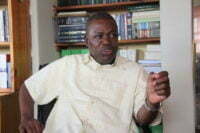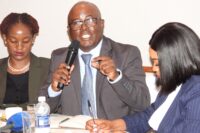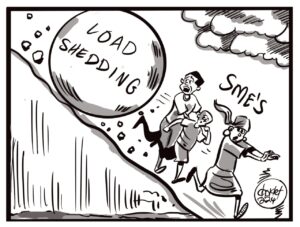NDC chairperson for gender and child development Saboi Imboela says the project by LWSC to construct 12,000 emptable toilets in cholera-prone Kanyama, Chawama, John Laing and surrounding townships, is a very good idea which should not just end up on paper.
And Imboela urged Lusaka Water and Sewerage Company to look for extra funding for the project so that the poor benefactors in the townships do not worry about paying the K2,000 to be part of the initiative.
Lusaka Water and Sewerage Company (LWSC) public relations manager Patson Phiri said in an interview last week, that the company would be constructing 12,000 emptable toilets in Kanyama, Chawama, John Laing and surrounding areas, in an effort to fight cholera.
He said once these emptable toilets were full, the human waste would then be collected and turned into fertilizer.
Phiri said interested residents would be expected to pay as little as K2,000 for a toilet that would cost as much as K15,000.
Adding voice to the development in an interview with News Diggers! Imboela who is also the NDC losing mayoral candidate, said the idea of constructing emptable toilets was very good because it would lessen the contamination of ground water.
Imboela observed that although the idea was workable, the potential of it failing was high because only a few people would manage to pay that K2,000, as the majority of the targeted people had no money.
“The idea of the emptable toilets is very good so that we help lessen contamination of ground water and also make fertiliser from the waste. Ground water contamination due to many pit latrines is such a huge challenge and something that has to be worked on in order to stop the seemingly annual cholera outbreaks. So such initiatives, if properly managed and encouraged can really help solve some of these problems. Zambia is never short of good ideas, the main problem we always have is implementation,” she said.
“Already, the PR Manager of LWSC Mr Patson Phiri mentioned in his statement that people only needed to pay K2,000 and everything would be done for them. How many people in Chawama, John Laing and Kanyama have a K2,000 to invest in those toilets? People don’t have money, especially that some of these [people] are those whose income was instantly and brutally taken away from them when they were chased from various trading places, including their own backyards. So I really love the idea and it is workable, but the potential for failure is high as [few] people are expected to pay for these toilets.”
And Imboela said in its current state, LWSC wouldn’t succeed with the project, unless it invested in human resource and equipment.
She however noted that LWSC was aiming more at getting that K2,000 to implement the programme, than solving the sanitation issues in the compounds.
“Further, it takes about two years for such toilets to be full and emptied so the job creation that was being talked about (by Phiri) is not something that will happen now, but after two years when these toilets are ready to be emptied. Otherwise it will still require investment by LWSC to bring transport and human resource to handle this collection when the time comes. The women and youths that can be trained to help out in this process will still need enough human resource from LWSC to carry out this operation successfully,” she said.
“They (LWSC) don’t have the capacity in terms of human resource and equipment. They would have to buy trucks and other staff to carry this out effectively. So it can’t be successful in their current state but unless they invest in capacitating themselves to do so. And I actually don’t see them increasing their capacity but are only talking. Their aim seems more of trying to get K2,000 to implement this programme than solving the sanitation issues of these compounds.”
Meanwhile Imboela said Zambians were tired of witnessing plans that only ended up on paper.
“LWSC should as well, train people in these compounds so that they are able to carry out this initiative. We are tired of seeing good ideas that only end up on paper and when the time comes to implement them they just tell us that ‘they don’t have the resources to do that’. And also government spends a lot of money when there is a cholera outbreak so they should not really rely on people to pay K2,000 for them to carry out this activity. Let the government invest in installing these toilets for as many people as possible as part of the sanitation programme, that should really seek to help end cholera. So they need to put even more money in this project for it to succeed,” said Imboela.












